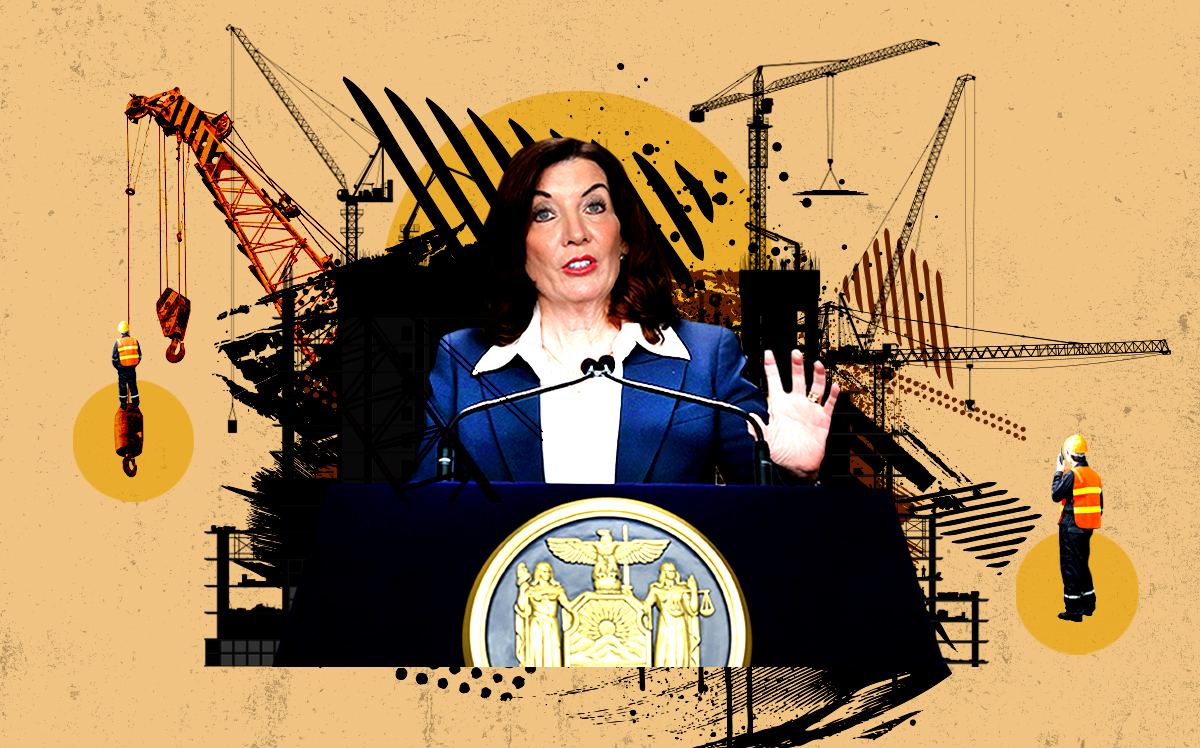Trending
Hochul: Extend the 421a deadline for construction
Governor’s executive budget would give developers until June 2030 to build

Developers might get an extra four years to complete projects that were in danger of losing a property tax break that some call essential to getting financing.
As part of her executive budget released Wednesday, Gov. Kathy Hochul proposed extending the construction deadline for New York City projects grandfathered under the now-expired 421a program.
Developers raced to qualify for the tax exemption by completing foundation elements by June 15, 2022, but still need to finish construction by June 2026 to ultimately receive the lucrative property tax break. Hochul wants to extend that construction deadline by four years, citing pandemic-related delays to construction schedules.
If approved, the change would be a victory for developers, who have argued that the 2026 deadline imperiled scores of apartment projects, including a number approved through recent rezonings.
A Real Estate Board of New York survey indicated that at least 32,000 units of housing would not move forward because of the 2026 deadline, as builders face rising construction costs and lenders don’t think their projects will pencil out without the tax break.
Some lenders have reportedly demanded that projects beat the deadline by a full year to get a construction loan, to reduce the risk of foreclosing on an unprofitable development.
Read more
The governor has said she would not unilaterally propose a replacement for 421a, as she did in last year’s executive budget, but instead will work with the legislature to create one.
A budget briefing book released Wednesday says the governor will, however, propose tax incentives for the conversion of office properties into apartments, as well as a property tax exemption that localities can adopt for multifamily housing.
Hochul also proposes changes — including lifting the city’s residential floor area ratio cap — to make up to 130 million square feet of office space eligible for conversion. Her executive budget also includes language that would allow New York City to legalize basement apartments.
The Senate Committee on Housing, Construction and Community Development advanced a similar bill on Tuesday. Last year’s budget set aside $85 million for bringing basement units up to code.
The governor’s budget, as promised, also includes a mandate that all cities, villages and towns in the state meet certain new housing targets within three years. The “New York Housing Compact” would allow developers to bypass local zoning in localities that fail to meet these thresholds, if their projects include a certain amount of affordable housing.
The growth targets are just 3 percent for suburbs of New York City, or less if they include affordable housing, but have met resistance from local officials.
Hochul’s budget proposals include the creation of a $250 million infrastructure support fund and a $20 million Planning Assistance Fund to help localities meet the targets. The full extent of funding for the governor’s housing initiative, which aims to create 800,000 new homes over the next decade, was not immediately clear.
The briefing book also mentions the governor’s $22 billion plan to expand and renovate Penn Station, and notes that a $1.3 billion appropriation is included in the budget to initiate the project. This is likely a carryover from previous budgets that set aside the same amount.







